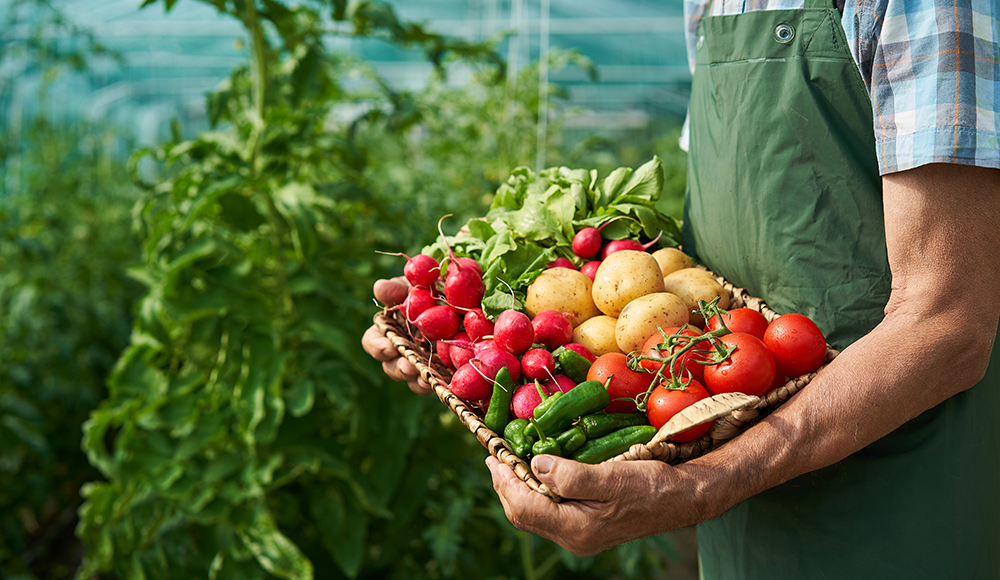
Top Tips and Tricks to Gardening for Beginners
These are the basics of how to plant a garden. Make sure the soil is properly drained and avoid planting in areas where water might collect. To keep your plants from being blown around by strong winds and foot traffic, you can use containers or raised beds to protect them. Even the most inconvenient places can be used to grow plants. Below are some tips for garden beginners:

It is important to test the soil before planting a garden. Some plants thrive in colder climates, so be sure to test it thoroughly before planting. In the spring, once the soil has cooled, cultivate it. Tilling helps to restore nutrients and keeps weeds away. It is important to pick the produce regularly, in addition to cultivating it. Even just five to ten minutes a day can make a difference.
Stake your plants to prevent animals and small children from eating them. Many plants can be brought indoors so that they can grow longer. While bringing them indoors is an option, consider protecting them from mother nature and from pests. Rainwater is another tip to protect your plant. Rainwater is more beneficial than water from the hose, because it contains more nitrogen than water from the hose. Rainwater can be captured by a rain barrel, garden hose or rain barrel.
You can also reuse containers. Pots and cans that have been recycled can be used to pot plants. Old containers can help improve soil drainage. Plants will thrive in a more hospitable environment with the added air pockets. Old cans are another great way to grow food in containers. This will increase the soil's fertility by creating air pockets. It is fun to plant soil.
Before planting, make sure to plan out your garden and choose plants appropriate for your climate. Although it can be difficult to determine which plants will thrive in your area, there are plants that are drought-resistant and that can withstand soggy soil. You can even use a tool like My Plantfinder to find the perfect plants. Be aware of the sun's direction and when you should plant. If you do not know, try to plan your garden around these factors.

Finally, ensure your garden gets enough sunlight. Most vegetables require at most six hours of sunlight each day. While some varieties can live in partial shade, most vegetables will need six hours or more of sunlight to thrive. Partly sunny locations are possible for vegetable gardening. But most vegetables and fruits require at least six hours' sunlight per day. A grow bag or raised garden is a good investment if you don’t have the time and money to plant your garden.
The most common mistake for novice gardeners is to over-water their plants. To avoid watering too much, test the soil moisture by inserting your finger in it. If the soil appears dry, it's time for watering. If it looks moist, it may need to be watered more often. If you do a little bit, you will be amazed at the difference in how your plants grow.
FAQ
When is the best month to plant a vegetable garden in my area?
The best time to plant vegetables is from April through June. This is the best time to plant vegetables. The soil is warmer and plants grow faster. If you live in a cold climate, you may want to wait until July or August.
Can I grow vegetables indoors
Yes, it is possible to grow vegetables in a greenhouse during winter. A greenhouse or grow light will be required. Before you do this, make sure to verify the local laws.
What is a plant calendar?
A planting calendar is a list of plants that should be planted at different times throughout the year. The goal of a planting calendar is to maximize plant growth and minimize stress. So, for example, spring crops such as lettuce, spinach, or peas should not be sown before the last frost date. Later spring crops include cucumbers, squash, and summer beans. Fall crops include carrots and cabbage, broccoli, cauliflowers, kale, potatoes, and others.
Statistics
- As the price of fruit and vegetables is expected to rise by 8% after Brexit, the idea of growing your own is now better than ever. (countryliving.com)
- 80% of residents spent a lifetime as large-scale farmers (or working on farms) using many chemicals believed to be cancerous today. (acountrygirlslife.com)
- According to a survey from the National Gardening Association, upward of 18 million novice gardeners have picked up a shovel since 2020. (wsj.com)
- Today, 80 percent of all corn grown in North America is from GMO seed that is planted and sprayed with Roundup. - parkseed.com
External Links
How To
How can I keep my vegetable garden weed-free?
Weeds pose a major threat to the production of healthy vegetables. They compete for water, nutrients, sunlight, and space. These tips will help you prevent them taking over your garden.
-
When they flower, take all the plants with you
-
Remove any plant debris around the base of the plant
-
Mulch can be used
-
Get enough water
-
Rotate crops
-
Do not let the grass get too long
-
Keep soil moist
-
Plant early
-
Harvest often
-
Make compost
-
Avoid chemical pesticides
-
Grow organic vegetables
-
Get heirloom seed
-
Start small
-
Learn more about companion planting
-
Be patient
-
Enjoy gardening!